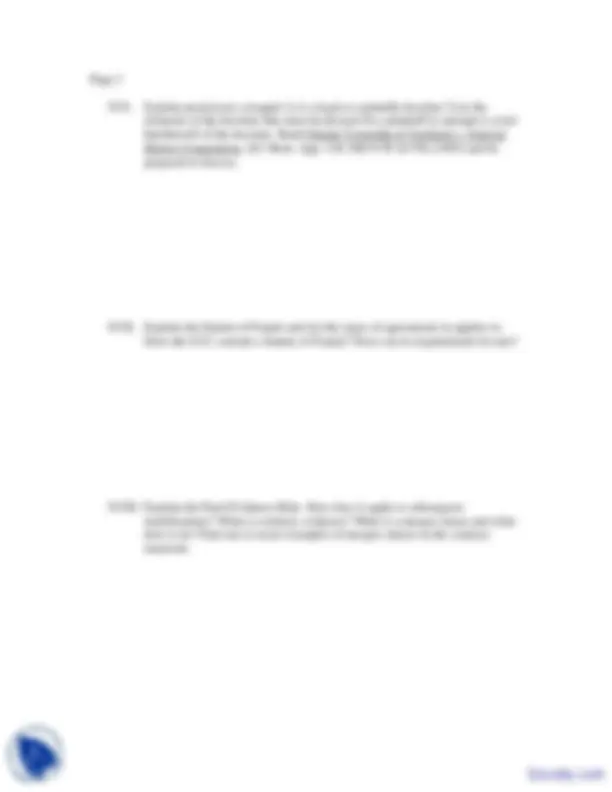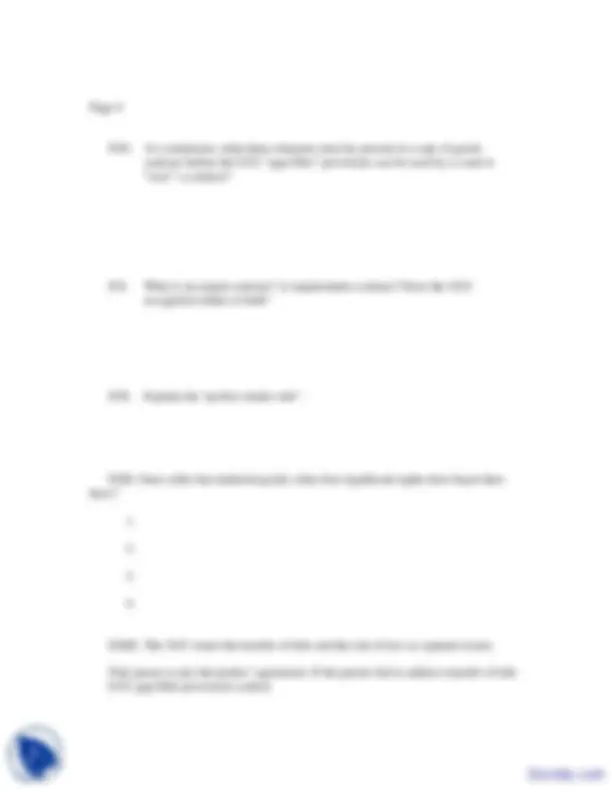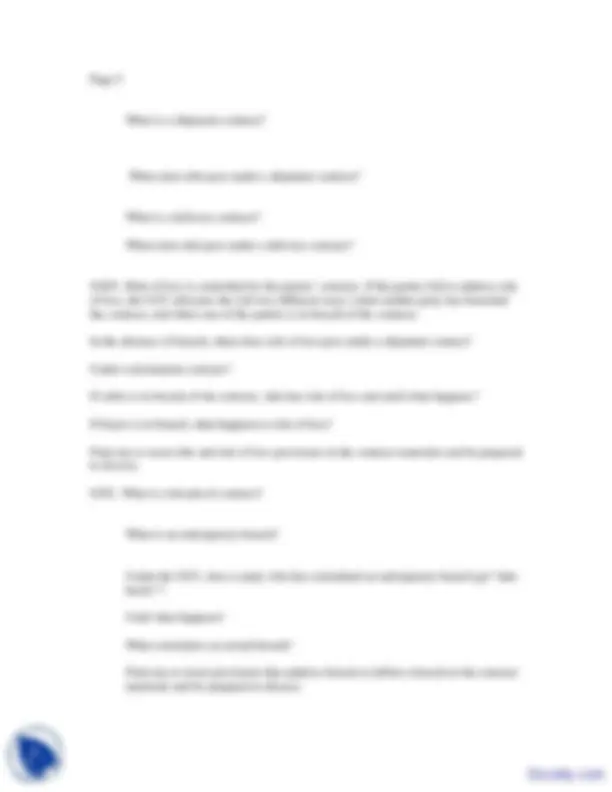





Study with the several resources on Docsity

Earn points by helping other students or get them with a premium plan


Prepare for your exams
Study with the several resources on Docsity

Earn points to download
Earn points by helping other students or get them with a premium plan
Community
Ask the community for help and clear up your study doubts
Discover the best universities in your country according to Docsity users
Free resources
Download our free guides on studying techniques, anxiety management strategies, and thesis advice from Docsity tutors
This lecture is from Marketing and Sales Law. Key important points are: Contracts, Choice of Law, Contract Materials, Sources of Law, Goods Contracts, Specifically, Distinctions, Goods Contracts, Determine, Valid Contract
Typology: Study notes
1 / 7

This page cannot be seen from the preview
Don't miss anything!




, Chapter 9 Contracts Study Guide
I. What is a “choice of law” provision in a contract? Find one or more choice of law provisions in the contract materials.
II. What are the two sources of law that govern sales of goods contracts?
III. What is the UCC? Which Article governs sales of goods?
IV. If the UCC doesn’t specifically address a point of contract law, what law controls?
V. List and explain two distinctions between the UCC and common law as they apply to sales of goods contracts.
VI. When a contract involves both the sale of goods and the provision of services, how do we determine whether the UCC applies or not?
VII. List the four parts of a valid contract.
VIII. Define the following:
Offer
Acceptance
The “mailbox” rule
Contracts, page 2
IX. How can an offer terminate? Find one or more provisions that address termination in the contract materials.
X. Explain bilateral vs. unilateral contracts.
XI. Discuss Advertisements as offers.
XII. What is an option contract and what makes one enforceable at common law? To whom does the firm offer rule (UCC 2- 205) apply, and how does it work?
XIII. What does the common law “mirror image rule” say about offer and acceptance, and how does UCC 2-207 attempt to change the common law? Why is “no, but” a key phrase for people negotiating a sales of goods contract? Find one or more “Battle of the Forms” provisions in the contract materials.
XIV. Define “consideration”. What does Hamer v. Sidway, 124 N.Y. 538 (1891) tell us about consideration? How do Courts view the issue of adequacy of consideration?
XV. What is meant by the capacity to contract? Who has capacity and who doesn’t? What is the status of a contract entered into by a minor?
Page 4
XIX. At a minimum, what three elements must be present in a sale of goods contract before the UCC “gap filler” provisions can be used by a court to “save” a contract?
XX. What is an output contract? A requirements contract? Does the UCC recognized either or both?
XXI. Explain the “perfect tender rule”.
XXII. Once seller has tendered goods, what four significant rights does buyer then have?
XXIII. The UCC treats the transfer of title and the risk of loss as separate issues.
Title passes as per the parties’ agreement. If the parties fail to address transfer of title UCC gap filler provisions control.
Page 5
What is a shipment contract?
When does title pass under a shipment contract?
What is a delivery contract?
When does title pass under a delivery contract?
XXIV. Risk of loss is controlled by the parties’ contract. If the parties fail to address risk of loss, the UCC allocates the risk two different ways; when neither party has breached the contract, and when one of the parties is in breach of the contract.
In the absence of breach, when does risk of loss pass under a shipment contact?
Under a destination contract?
If seller is in breach of the contract, who has risk of loss and until what happens?
If buyer is in breach, what happens to risk of loss?
Find one or more title and risk of loss provisions in the contract materials and be prepared to discuss.
XXV. What is a breach of contract?
What is an anticipatory breach?
Under the UCC, does a party who has committed an anticipatory breach get “take backs”?
Until what happens?
What constitutes an actual breach?
Find one or more provisions that address breach or define a breach in the contract materials and be prepared to discuss.
Page 7
NOTE: Issues marked with an * will be amplified in class.
Cases for class discussion:
Be prepared to discuss the following cases in class, and address their facts and holding in examinations:
Plantation Shutter Co. v Ezell page 318
Detroit Radiant Prods. Co. v BSH Home Appliance Corp. page 334
Leonard v PepsiCo. Pages 337- 341
Oakley Fertilizer, Inc. v Continental Ins. Co. pages 341 – 344
Tour Costa Rica v Country Walkers, Inc. pages 345 - 347